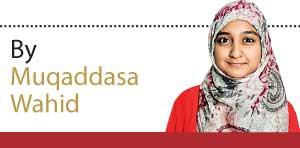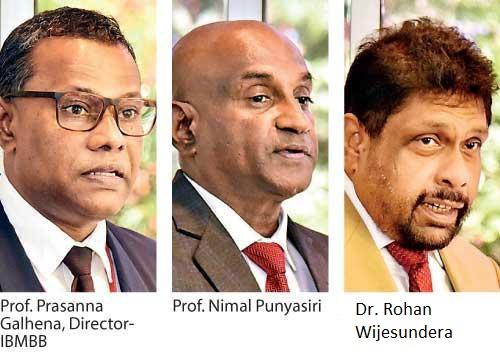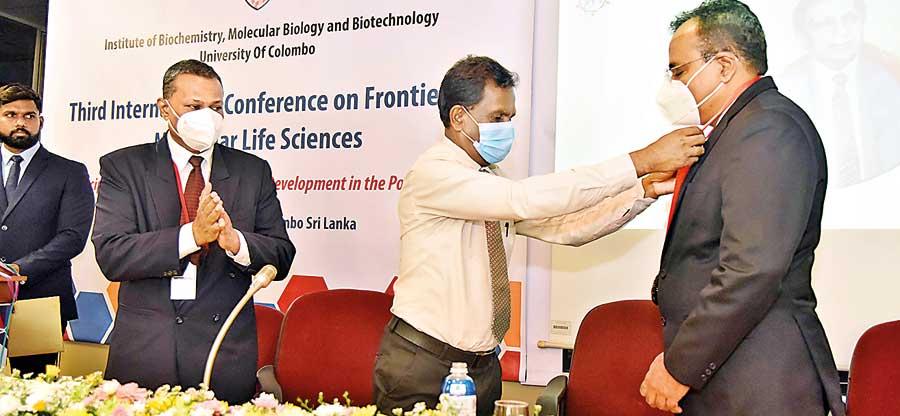Reply To:
Name - Reply Comment
- Prof. Stanley Wijesundera is hailed as one of the great leaders of higher education in the country
- The Prof. Stanley Wijesundera Memorial Lecture was started 15 years ago led by Prof. Kamani Tennakoon and Prof. Eric Karunanayake
Prof. Stanley Wijesundera Memorial Lecture and the inauguration of the International Conference on Frontiers in Molecular Life Sciences was held on April 6 at the Institute of Biochemistry, Molecular Biology and Biotechnology (IBMBB). According to Prof. Prasanna Galhena, Director of IBMBB, this event would help to share expertise and knowledge among academics, collaborative academics, researchers and students in the field of molecular life sciences and also enhance their career as they would be subjected to a diverse field of molecular biology, cellular and molecular immunology and bioinformatics.
Biochemistry, Molecular Biology and Biotechnology (IBMBB). According to Prof. Prasanna Galhena, Director of IBMBB, this event would help to share expertise and knowledge among academics, collaborative academics, researchers and students in the field of molecular life sciences and also enhance their career as they would be subjected to a diverse field of molecular biology, cellular and molecular immunology and bioinformatics.
“Knowledge is the prime source of change in the society and society is becoming increasingly knowledge-based. In an increasing globalised knowledge-based world, there is a critical need to create, share and disseminate knowledge. All the universities worldwide share the common goal of inspiring wisdom, nurturing talents, exploring knowledge, seeking truth, advancing civilization and leading societies. Therefore, exploring new knowledge is the prime agenda of universities and higher education institutes,” shared Dr Pradeep Dharmadasa, Acting Vice Chancellor of the University of Colombo. He added that the goal of this event would be to establish a common forum for academics working in a wide range of fields such as biochemistry, cell and structural biology, developmental biology, classic and molecular genetics, molecular biology, human disease, systems biology and synthetic biology.
“All the universities worldwide share the common goal of inspiring wisdom, nurturing talents, exploring knowledge, seeking truth, advancing civilization and leading societies. Therefore, exploring new knowledge is the prime agenda of universities and higher education institutes - Dr Pradeep Dharmadasa, Acting Vice Chancellor of the University of Colombo"
Who is Prof. Stanley Wijesundera?
Being the first Vice Chancellor of the University of Colombo in 1978, the year when the New University Act came into effect, Prof. Stanley Wijesundera is hailed as one of the great leaders
|
Prof. Stanley Wijesundera |
of higher education in the country. Hailing from Kandy, Prof. Wijesundera obtained his first degree with first class honours at the then University of Ceylon (currently University of Colombo). He then joined the Faculty of Medicine, University of Ceylon as a lecturer in 1947. After obtaining his PhD from University of Oxford, he returned back and rose in ranks at the Department of Biochemistry in the Faculty of Medicine, becoming the Chair of the Department in 1978. That was the year the New University Act came into effect, which gave the autonomy to various campuses across University of Ceylon to function individually and Prof. Wijesundera became the first Vice Chancellor of the newly formed University of Colombo, which was formerly the Colombo Campus of the University of Ceylon. According to Vidya Jyothi Prof. Vajira Dissanayake, Dean, Faculty of Medicine, University of Colombo, Prof. Wijesundera was instrumental in transforming the Colombo Campus to a metropolitan campus.
As a tribute to the indelible legacy Prof. Wijesundera has left behind, the Prof. Stanley Wijesundera Memorial Lecture which was started 15 years ago led by Prof. Kamani Tennakoon and Prof. Eric Karunanayake.
This year, Dr. Rohan Wijesundera, the first son of Prof. Wijesundera, delivered a speech on behalf of the Wijesundera family. Prof. Nimal Punyasiri introduced the memorial lecturer, Prof. Dissanayake who is hailed as a pioneer in genetics, genomics, biomedical informatics and bioethics in Sri Lanka and was the youngest person to be elected as a fellow of National Academy of Sciences, Sri Lanka in 2013. He was also the first Sri Lankan to become a fellow of the International Academy of Health Sciences Informatics in 2020.
“Our researchers were also able to challenge Western findings such as the finding that Y chromosome microdeletions was associated with recurrent pregnancy loss. We were able to prove that the Y chromosome microdeletions was not associated with recurrent pregnancy loss, - Vidya Jyothi Prof. Vajira Dissanayake"
Genetics and Genomics in the Sri Lankan population- Insights from Four Decades of Service and Research
The memorial lecture was delivered on the topic of ‘Genetics and Genomics in the Sri Lankan population- Insights from Four Decades of Service and Research’ by Prof. Dissanayake. The Human Genetics Unit was introduced in 1983 by Prof. Rohan Jayasekara who paved the way for genetic studies in Sri Lanka. This has facilitated numerous research studies on various genetic conditions, with pre-eclampsia being the most research genetic condition in Sri Lanka. “Our research on pre-eclampsia has been used by other countries too to further their own research. Not only that, our researchers were also able to challenge Western findings such as the finding that Y chromosome microdeletions was associated with recurrent pregnancy loss. We were able to prove that the Y chromosome microdeletions was not associated with recurrent pregnancy loss,” revealed Prof. Dissanayake. He also shared that the Sri Lanka Human Genome was launched in 2010 which furthered genomic medicine in Sri Lanka as it helped to discover various genetic conditions.
 Presenting one of the latest research findings on Pharmacogenomics, Prof. Dissanayake elaborated that people in different regions or even the same region can respond to drugs differently due to their genetic make-up. “When we looked at Sri Lankans- Sinhalese, Sri Lankan Tamils and Moors; we saw that there was not much of a genetic difference among the various ethnic groups. The genetic make up was very similar. Then when we compared Sri Lankans with other South Asians, overall, they were similar. When we compared with South East Asian populations, there was a marked difference between the genetic make-up and when we looked with the Western population, a significant difference was observed. The issue here is, when it comes to our drug dosing, we follow the dosing regimen and medical formula meant for the Western population, with whom our population has significant genetic differences with. To garner an effective drug response, we need to take the pharmacogenetic studies into consideration and integrate it into practice,” he revealed adding that the issue in Sri Lanka is that modern science is not integrated into modern medicine.
Presenting one of the latest research findings on Pharmacogenomics, Prof. Dissanayake elaborated that people in different regions or even the same region can respond to drugs differently due to their genetic make-up. “When we looked at Sri Lankans- Sinhalese, Sri Lankan Tamils and Moors; we saw that there was not much of a genetic difference among the various ethnic groups. The genetic make up was very similar. Then when we compared Sri Lankans with other South Asians, overall, they were similar. When we compared with South East Asian populations, there was a marked difference between the genetic make-up and when we looked with the Western population, a significant difference was observed. The issue here is, when it comes to our drug dosing, we follow the dosing regimen and medical formula meant for the Western population, with whom our population has significant genetic differences with. To garner an effective drug response, we need to take the pharmacogenetic studies into consideration and integrate it into practice,” he revealed adding that the issue in Sri Lanka is that modern science is not integrated into modern medicine.
Prof. Dissanayake went on to add that modern science and its research findings must be integrated into practice to enable better outcomes. He shared that in genetic disorders, modern scientific findings can help remove the stigma surrounding these disorders as it can inform the public what truly is the cause.

Prof. Dharmadasa confers the medal of the memorial lecture to Prof. Dissanayake as Prof. Galhena looks on
Pix by Kithsiri De Mel